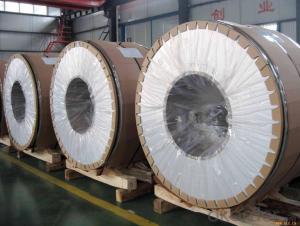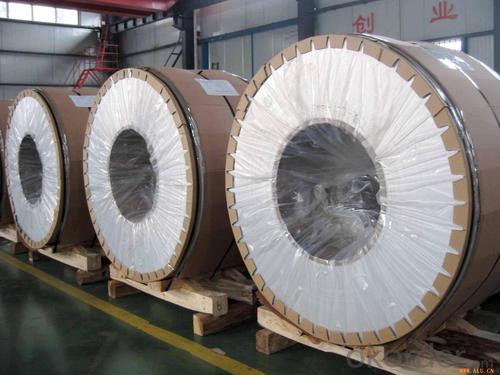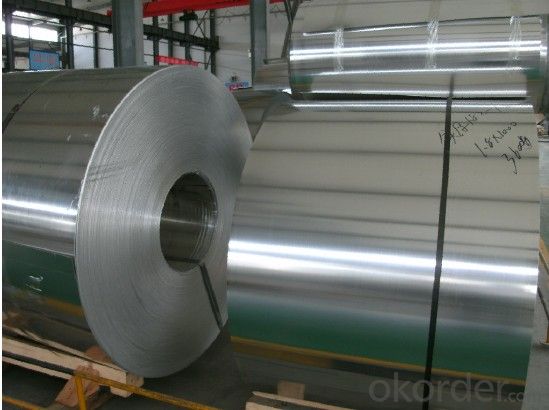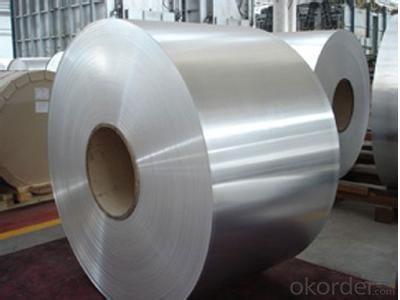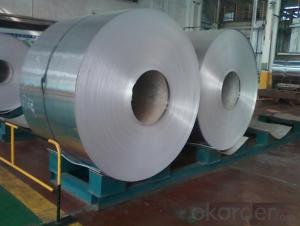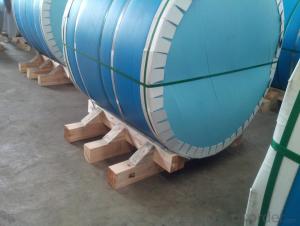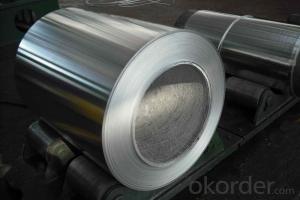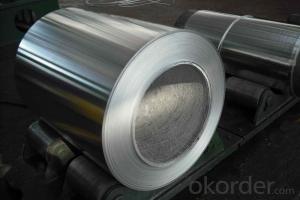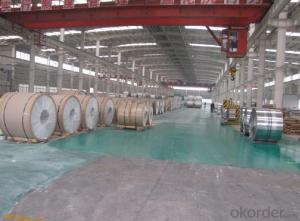China Aluminum Skin Sheets - Direct Casting Aluminum Coils for Re-Rolling
- Loading Port:
- Shanghai
- Payment Terms:
- TT OR LC
- Min Order Qty:
- 5 m.t.
- Supply Capability:
- 20000 m.t./month
OKorder Service Pledge
OKorder Financial Service
You Might Also Like
Specification
1.Structure of Direct Casting Aluminium Coils for Re-rolling
Direct Casting Aluminium Coils for Re-rolling is one semi-finished aluminium material. This strip can be rolled down to aluminium coil,sheet,circle ect. The alloy AA1050 is widly used in building, industry ect. Its weight is much lower than steel. So many customers choosed aluminium material instead of steel.
2. Main features of Direct Casting Aluminium Coils for Re-rolling
a.Competitive price---We have our own mills and can produce mill finished aluminium coils, so we can control the production cost better.
b.Professional after-sale service---We have more than 15 years exportation experience and you need not worry about the exporation problems.
c.Fast delivery time---We can control the delivery time within 35 days.
3. Image
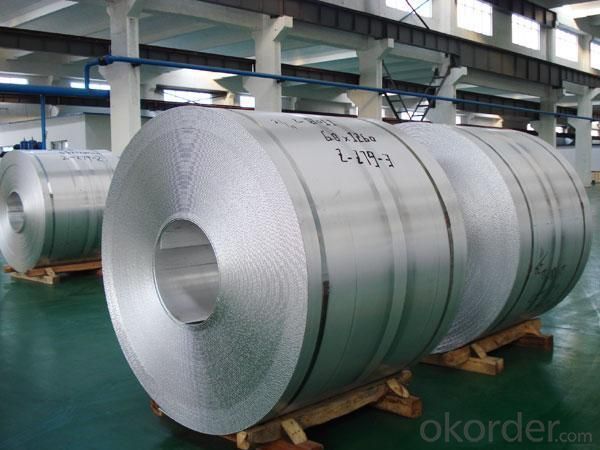
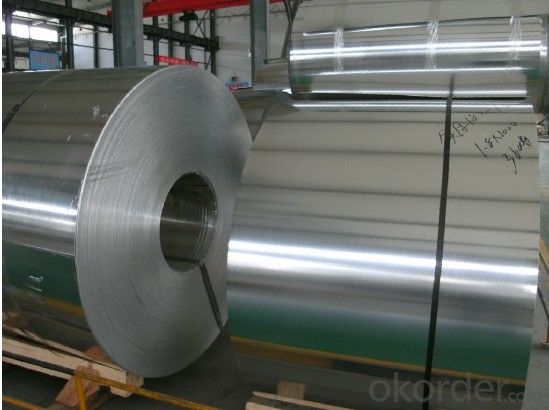
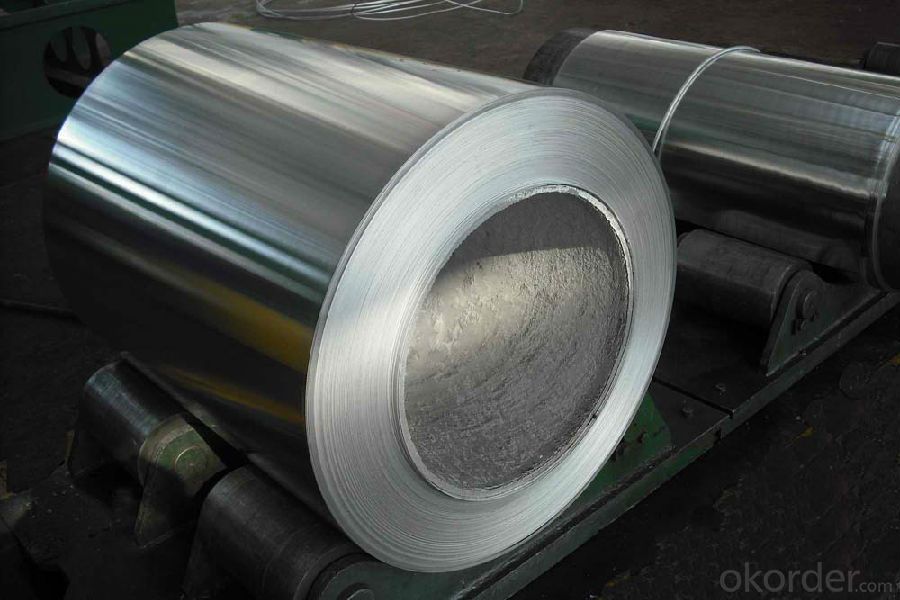
4. Product Specification
| Alloy | Temper | Style | Thickness | Width |
| AA1100 | H14 | Direct Casting | 0.2mm-3mm | 1000mm-1500mm |
5.FAQ:
What is the quality standard?
---Usually our standard is GB3880-2006
What is the largest width?
---It is 2300mm
What is the MOQ?
---Usually we can accept 80 tons.
- Q: Can aluminum sheets be used for decorative or architectural purposes?
- Yes, aluminum sheets can be used for decorative or architectural purposes. Due to their lightweight, durability, and versatility, aluminum sheets are commonly used in architectural design and construction for applications such as cladding, roofing, facades, and decorative elements. They offer various finishes, patterns, and colors, making them suitable for enhancing the aesthetic appeal of both interior and exterior spaces. Additionally, aluminum sheets are resistant to corrosion and require minimal maintenance, making them a popular choice for decorative and architectural purposes.
- Q: Can the aluminum sheets be used for manufacturing kitchen countertops?
- Yes, aluminum sheets can be used for manufacturing kitchen countertops. Aluminum is a versatile and durable material that is resistant to corrosion and heat. It is lightweight and easy to work with, making it suitable for creating custom countertops in various sizes and shapes. Additionally, aluminum countertops offer a modern and sleek aesthetic, and they can be easily cleaned and maintained. However, it is important to note that aluminum is a softer metal compared to other materials commonly used for countertops, such as granite or quartz. This means that aluminum countertops may be more prone to scratches and dents. Nevertheless, with proper care and maintenance, aluminum sheets can be a viable option for manufacturing kitchen countertops.
- Q: What are the specific rules or codes that govern the use of aluminum sheets in residential construction?
- <p>Yes, there are special regulations related to using aluminum sheets in residential buildings. These regulations can vary by country, state, or municipality, but generally, they cover aspects such as material standards, fire resistance, structural integrity, and energy efficiency. For example, aluminum sheets must meet specific thickness and strength requirements to ensure structural safety. They must also comply with fire codes, which may require certain fire-resistant coatings or treatments. Additionally, energy codes may dictate the insulation value of aluminum sheets used in walls or roofs to improve thermal performance. It's crucial to consult local building codes and regulations to ensure compliance when using aluminum sheets in residential construction.</p>
- Q: What does exterior wall imitate aluminium paint have? Imitate aluminium plate paint is fluorocarbon paint?
- If not missing the cost or use aluminum plate, because the fluorine content of fluorocarbon metal paint paint factory production lot are not enough, so the warranty 10-15 years is just a pretext, and the construction of the technical requirements for workers is relatively high.
- Q: I'm gonna drop the dime and get a bass boat. other than weight why is a fiberglass better than aluminum?I'm looking at the difference between the top of the line BassTracker and the bottom of the line Nitro. I only want about a 90 -115 hp and I'm gonna buy a couple years old to save some money.. so what are the pros - cons?
- Bass Tracker Aluminum Boats
- Q: Can the aluminum sheets be used for manufacturing heat exchanger fins?
- Indeed, the utilization of aluminum sheets is possible in the production of heat exchanger fins. Owing to its remarkable thermal conductivity and resistance to corrosion, aluminum stands as a frequently employed substance in heat exchangers. The lightweight and easily malleable attributes of aluminum sheets render them exceptionally suitable for the creation of fins that possess an extensive surface area, thereby augmenting heat transfer. Furthermore, aluminum is readily accessible and cost-efficient, solidifying its status as a favored selection within the realm of heat exchanger manufacturing.
- Q: This question asks for a comparison between the benefits and drawbacks of utilizing products made from recycled aluminum.
- <p>Advantages of using recycled aluminum products include reduced energy consumption, lower greenhouse gas emissions, and a decrease in the need for raw material extraction. It also promotes waste reduction and supports a circular economy. Disadvantages might include potential quality concerns, as recycled aluminum might not always meet the same strength and durability standards as new aluminum. Additionally, there can be higher initial costs associated with recycling processes and the need for advanced sorting and processing technologies.</p>
- Q: What are the different methods of surface preparation for adhesive bonding of aluminum sheet?
- There are several different methods of surface preparation for adhesive bonding of aluminum sheet. These methods are used to ensure a strong and durable bond between the adhesive and the aluminum surface. One common method is mechanical abrasion, which involves roughening the surface of the aluminum sheet using abrasive materials such as sandpaper or wire brushes. This creates a textured surface that improves the adhesion of the adhesive. Another method is chemical etching, which involves treating the aluminum surface with a chemical solution to remove any oxide layer and create a clean and reactive surface. This can be done using acids or alkalis, depending on the specific requirements of the adhesive. Some adhesives require a clean surface free from any contaminants, so a method called solvent cleaning can be used. This involves using solvents such as acetone or isopropyl alcohol to remove any grease, oil, or dirt from the surface of the aluminum sheet. In addition to these methods, there are also specialized techniques such as anodizing and chromate conversion coating. Anodizing involves creating a thick oxide layer on the surface of the aluminum through an electrolytic process, which improves the bonding properties. Chromate conversion coating, on the other hand, involves treating the aluminum surface with a chemical solution containing chromates, which creates a protective layer and enhances adhesion. Overall, the choice of surface preparation method depends on the specific requirements of the adhesive and the desired bond strength. It is important to carefully select and follow the appropriate method to ensure a successful adhesive bonding of aluminum sheet.
- Q: Can the aluminum sheets be used for manufacturing food storage containers?
- Indeed, food storage containers can be manufactured using aluminum sheets. The utilization of aluminum in food storage containers is widespread due to its qualities such as being lightweight, long-lasting, and possessing exceptional thermal conductivity. Its malleability allows for effortless shaping into diverse dimensions, making it adaptable for various storage requirements. Moreover, aluminum exhibits resistance to corrosion and can be conveniently cleansed, guaranteeing the protection and cleanliness of the stored food.
- Q: Are aluminum sheets suitable for pharmaceutical applications?
- Aluminum sheets are well-suited for pharmaceutical use, as they possess a range of advantageous properties. Firstly, their lightweight nature and exceptional resistance to corrosion make them an ideal choice for packaging pharmaceutical products. By shielding the contents from external factors like moisture, light, and oxygen, which could potentially compromise the medication's quality, aluminum sheets offer excellent protection. Additionally, aluminum sheets are highly malleable and can easily be molded into different shapes and sizes, allowing for customized packaging designs. Moreover, their availability in various thicknesses provides options for different types of pharmaceutical products, including tablets, capsules, and liquid medications. Furthermore, aluminum sheets boast a remarkable barrier property that effectively prevents the transfer of odors, flavors, and contaminants. This barrier ensures the integrity and safety of the medication throughout its entire shelf life. Furthermore, aluminum is a non-toxic material, guaranteeing that it does not react with drugs or alter their composition. This quality makes it an optimal choice for pharmaceutical applications, where maintaining the purity and stability of the medication is of utmost importance. In conclusion, aluminum sheets are highly suitable for pharmaceutical applications, thanks to their lightweight nature, corrosion resistance, barrier properties, and non-toxic composition. By efficiently safeguarding and preserving pharmaceutical products, they ensure the quality and safety of these crucial medications.
Send your message to us
China Aluminum Skin Sheets - Direct Casting Aluminum Coils for Re-Rolling
- Loading Port:
- Shanghai
- Payment Terms:
- TT OR LC
- Min Order Qty:
- 5 m.t.
- Supply Capability:
- 20000 m.t./month
OKorder Service Pledge
OKorder Financial Service
Similar products
Hot products
Hot Searches
Related keywords
